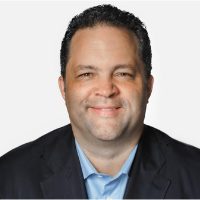
By Ben Jealous
(Trice Edney Wire) – I thought last week about the psalm that describes how the most exalted pays closest attention to the smallest, the most in need among us.
I was at the White House Thursday marking a major step that the Biden administration took to protect the Earth. The interesting part was it wasn’t related to the major news that day.
Earlier, the Environmental Protection Agency (EPA) had proposed the tightest limits ever on coal- and gas-fueled power plants’ pollution. Those plants are the second largest source of planet-warming gases in the country.
The rules would require power companies to reduce their air pollution. Along with unprecedented federal spending to build clean energy, it’s a key step toward meeting the President’s pledge to cut U.S. greenhouse gas emissions in half by 2030.
It’s a monumental step in a fight I’ve been part of for more than a decade, since we launched the NAACP’s climate justice program and reported on the disproportionate harm to Black communities from coal-fired power plants.
But we were on the White House lawn with Indigenous Alaskans and their allies in environmental groups celebrating the end to a decades-long fight to protect Bristol Bay from a proposed open pit gold and cooper mine that would dump into the watersheds of two rivers emptying into the bay.
The EPA earlier this year made a final ruling under the Clean Water Act to prohibit the pollution. It was only the third such decision in the last 30 years.
Bristol Bay is a place where native culture and commerce both thrive. It’s home to one of the world’s last sustainable, salmon-based cultures in more than two dozen Native Alaskan villages and communities surrounding it.
The bay also is the world’s largest sockeye salmon fishery, producing half the wild sockeye consumed annually and creating 15,000 jobs. The rivers and streams that run through Bristol Bay are vital spawning grounds for coho and chum as well as sockeye salmon and favorites for sport fishermen. In all, the pollution would have risked $2.2 billion in economic impact.
“Salmon have sustained our indigenous ways of life and support thousands of American jobs. But for the last 20 years, the Pebble Mine has threatened to take all of that away — but our people stood up and fought back to protect what we hold sacred,” Alanna Hurley, who leads United Tribes of Bristol, told us.
President Biden noted that the commercial salmon season begins on June 1. Fishermen will “head out on the water at dawn, cast their nets, and fish the most abundant wild salmon on the planet. Just like fishermen have done for generations.” He added, “Just like they will do for generations to come thanks to all of you.”
It was a reminder that local fights turn into significant victories, that diverse groups from native peoples to sport fishermen can find something they all care about and protect it together. It’s how we will save the planet, keep it livable, and keep this democracy strong.
Ben Jealous is executive director of the Sierra Club, the nation’s largest and most influential grassroots environmental organization. He is a professor of practice at the University of Pennsylvania and author of “Never Forget Our People Were Always Free,” published in January.















